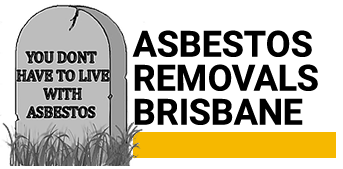

What are the Most Common Asbestos Related Diseases?
Many people know of the dangers of asbestos but aren’t aware of exactly how and why it affects the body. As asbestos fibres are so small, being exposed to asbestos can cause the fibres to become stuck in the throat lining, which can slowly aggravate cells over time. Because the body is unable to get rid of these fibres, the cells start to mutate and cause problems that range from moderately severe to fatal. In today’s blog, we look at the most common asbestos related diseases and symptoms you may experience if you’ve been exposed to asbestos.
Risk factors for developing asbestos related diseases
Asbestos related diseases are most common for people working in mining and construction. This includes:
- Auto mechanics
- Construction workers
- Miners
- Electricians
- Shipyard workers
- Firefighters
- Pipefitters
- Plumbers
- Railroad workers
Symptoms of asbestos illness:
- Shortness of breath
- Pain in chest or tightness
- Wheezing sounds
- Fatigue
- Weight loss
- Swelling in neck and face
- Fluid build-up in lungs
- Clubbed toes
Main diseases related to asbestos
Effusions (Pleural, Peritoneal, Pericardial)
Effusions or excess fluid build-up caused by asbestos exposure can occur in the abdominal cavity, the chest cavity or the membrane surrounding the heart. Even if the fluid is drained, it’s likely to come back unless the condition is addressed with a procedure known as ‘pleurodesis’, which causes the pleural membranes to stick together. Effusions are usually a sign of a greater health condition and are commonly found in Mesothelioma patients.
Asbestosis
Asbestosis is a chronic lung disease that can develop after asbestosis exposure. This asbestos illness causes scarring in the lungs, which makes it difficult for a person to breathe. Though it usually occurs after prolonged exposure, it is possible for a person to develop asbestosis after being exposed once. Asbestosis can greatly impact one’s livelihood and can go on to become lung cancer or Mesothelioma. This asbestos illness can also cause heart problems, heart failure and increases the chances of having a stroke.
Mesothelioma
Mesothelioma is a deadly form of cancer caused solely by inhaling asbestos fibres. Though it’s a rare form of cancer, it’s estimated only 20% of patients will reach five years of survival after diagnosis. As Mesothelioma usually quickly spreads throughout the whole body, a lung transplant isn’t always a lifesaving option. This disease can take between 13-70 years to appear after exposure, leaving many people unaware they’ve inhaled asbestos fibres. Mesothelioma can occur in four different types, including Pleural (lungs), Peritoneal (Abdomen), Pericardial (Heart) and Testicular (Testicle lining).
Lung cancer
Though 90% of lung cancer can be attributed to smoking, it can also be caused by asbestos exposure. Generally, the more a person is exposed to asbestos, the higher the chance they have of developing cancer – similar to smoking. Though lung cancer is usually quicker to develop than Mesothelioma, it usually takes on average 15 years.
Ovarian cancer
Women tend not to be exposed to asbestos at the same rate men are, but asbestos can uniquely target ovaries. Asbestos related can come in various forms including lung, stomach and colon, ovarian cancer is one of the primary cancers associated with asbestos. It’s unknown how inhaled fibres get to the ovaries, though it’s estimated it might be through the reproductive tract.
Think your home may have asbestos?
If your home was built before 2003, there’s a chance it could be built with asbestos containing materials. Even one time exposure can lead to possible asbestos related diseases, which is why it’s crucial to have asbestos testing conducted on your home for peace of mind. Call Myers Asbestos Removal Services today on 0412 314 588 to arrange an inspection, or fill out a form online and we’ll get back to you shortly.
